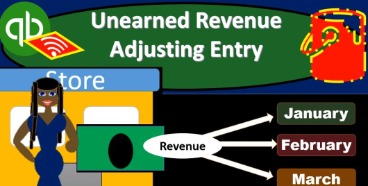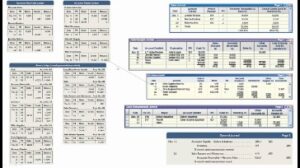2 6 Accounting for Inventory Financial and Managerial Accounting
Content

Errors of omission, error of posting with wrong amount on both side, or Error of principles are the example of such errors. To find out such errors is a challenging https://quick-bookkeeping.net/ job for any book keeper or an accountant. Download this Excel financial statement effects template to help your team analyze and record financial transactions.
How does inventory error affect balance sheet?
An incorrect inventory balance causes the reported value of assets and owner's equity on the balance sheet to be wrong. This error does not affect the balance sheet in the following accounting period, assuming the company accurately determines the inventory balance for that period.
The PCAOB's approach to selecting which audits to inspect reflects key areas of financial statement reporting that companies and auditors should consider when performing their audits. A company that previously presented impairment charges on its intangible assets within selling, general, and administrative expense decides in the current reporting period to separately present the impairment charges within the statement of operations. The cumulative effect of the correction on retained earnings or other appropriate Impacts Of Inventory Errors On Financial Statements components of equity or net assets in the statement of financial position, as of the beginning of the earliest period presented. When a Big R restatement is appropriate, the previously issued financial statements cannot be relied upon. Therefore, the entity is obligated to notify users of the financial statements that those financial statements and the related auditor’s report can no longer be relied upon. Changes in the reporting entity mainly transpire from significant restructuring activities and transactions.
Ways in Which Inventory Management Affects Financial Statements
Accordingly, a change in an accounting policy from one that is not generally accepted by GAAP to one that is generally accepted by GAAP is considered an error correction, not a change in accounting principle. Likewise, if information is misinterpreted or old data is used when more current information is available in developing an estimate, an error exists, not a change in estimate. In this publication, we provide an overview of the types of accounting changes that affect financial statements, as well as the disclosure and reporting considerations for error corrections. An incorrect inventory balance causes the reported value of assets and owner’s equity on the balance sheet to be wrong. Changes in inventories and incorrect inventory balances affect your balance sheet, the financial statement that is a snapshot of your company’s worth based on its assets and liabilities.
- Learn more about the effect that inventory errors can have on businesses.
- If the ending inventory is overstated, cost of goods sold is understated, resulting in an overstatement of gross margin and net income.
- This means you have inventory available for sale of $101,000 at the beginning of the next quarter.
- As incorrect ending inventory is recorded in the balance sheet and incorrect amount of cost of goods sold is entered in income statement, which makes net income balance also incorrect.
- It is an important part of inventory analysis, as it affects the cost of goods sold, the gross profit, and the net income of a business.
- Inventory is a line item on your balance sheet and cost of goods sold to calculate net income on your income statement.
However, there may be circumstances in which the out-of-period adjustment stands out (e.g., it appears as a reconciling item in the rollforward of an account balance) that may warrant consideration of disclosure about the item’s nature. A fundamental pillar of high quality public financial reporting is reliable, comparable financial statements that are free from material misstatement. Accounting changes and errors in previously filed financial statements can affect the comparability of financial statements. The cost of goods sold and profitability might be affected by inventory errors since they can lead to an incorrect ending inventory balance.
If there is a Mistake that Effects Trial Balance
For financial statements of periods in which there has been a change in reporting entity, an entity should disclose the nature of and reasons for the change. In addition, the effect of the change on income from continuing operations, net income , other comprehensive income, and any related per-share amounts shall be disclosed for all periods presented. A critical element of analyzing whether a change should be accounted for as a change in estimate relates to the nature and timing of the information that is driving the change. Companies should carefully assess whether such information is truly “new” information identified in the reporting period or corrects inappropriate assumptions or estimates in prior periods . For example, a change made to the allowance for uncollectible receivables to include data that was accidentally omitted from the original estimate or to correct a mathematical error or formula represents an error correction. Conversely, a change made to the same allowance to incorporate updated economic data (e.g., unemployment figures) and the impact it could have on the customer population would represent a change in estimate.

